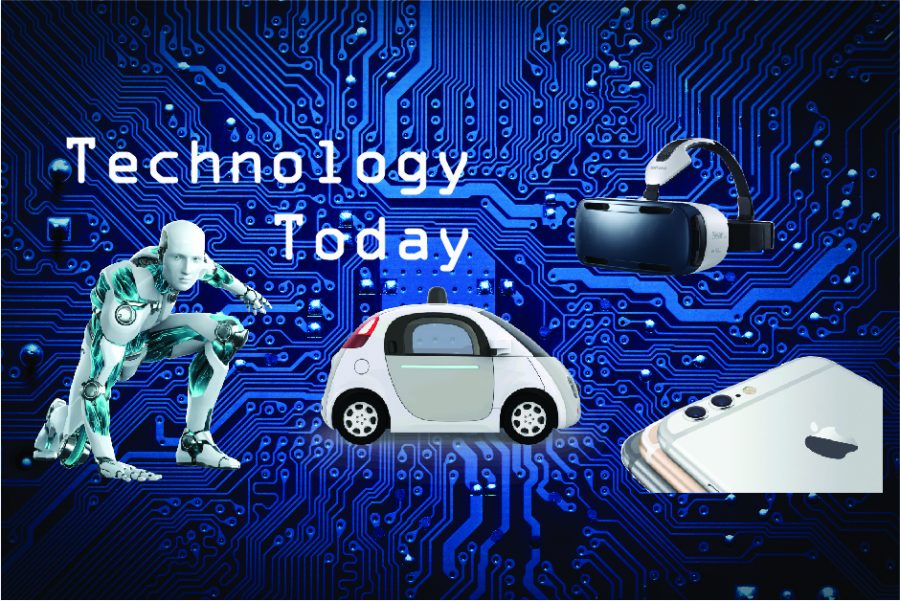Someone suggested to me recently that Samsung phones were “cheap” compared to the $1000 iPhone X, or even the $800 iPhone 8 Plus. I was told that getting a Samsung device would be far easier than getting an Apple product due to Samsung’s inexpensive product line. In reality, the new Samsung Galaxy S9+ is in the same range as the typically-expensive Apple devices, costing $840. This mindset has led to a perception that Apple products are of a higher quality than those of other companies like Samsung, but in fact that just is not true.
Many Apple fans I have encountered find it hard to believe that before the company removed its home button for a bigger screen or “invented” features like face recognition or wireless charging, Samsung did the same. Samsung phones have been made more water resistant than Apple ones, according to their official ratings from the International Electrotechnical Commission, and they have managed to keep their fingerprint sensors. New Samsung devices also have the screen take up the whole front of the phone, which Apple did not previously do, and recently became the first smartphones to implement a dual-aperture camera. While doing all of this, the Samsung Galaxy phones kept their headphone jacks, which Apple removed from its products following the iPhone 7 in 2016.
Nonetheless, the iPhone was the best-selling tech device of 2017. If other companies’ products match and at times surpass Apple’s, why are Apple products seen as the best?
The first reason is that the iPhone came before the Samsung Galaxy. It may seem logical to say that once another company passes it in quality, it will also in sales. Typically that does not happen, especially with a product as expensive as a phone. The reason for such a phenomenon is psychology: a consumer who uses a product of a specific brand is likely to resist switching to another, a concept commonly known as “brand loyalty.” For example, someone searching for a new car statistically will go to the same brand as their old one. This psychological tendency is why the products of unknown companies tend to start at extremely low prices. The company tries to entice consumers to try the product because of its price, then once it has a consumer base it can raise the price of it to increase profit. Those who have already started using the product will likely stay with it anyway. Loyalty to a person’s brand develops subconsciously. Because the public gravitated toward Apple upon the release of the first iPhone, it stayed there.
The second reason, perhaps the most important one, is social and societal trends. I own an iPhone primarily because my friends do. There are benefits of having the same smartphone brand as friends, such as the ability to use Apple features like iMessage or FaceTime with each other. I have witnessed individuals get excluded from group chats because they used different types of phones, leading them to eventually purchase an iPhone to join the circle. The same goes for Samsung features, but once a brand dominates a group of people it becomes difficult to sway the majority to the other side. Apple seems to have the existing majority among Americans, so it remains the social standard despite arguably inferior product quality. The social standard in much of Europe is the Samsung, so those phones make up almost half of those sold.
There are other reasons Apple holds that place, including its typically user-friendly software in comparison to other devices. The issue is not that Apple products are the standard. In fact, I have an iPhone and do not plan on switching to Samsung any time soon. The issue is that Samsung is often disregarded, damaging the process of innovation. If brand recognition becomes more important than being delivered something new, we don’t allow ourselves to experience our newly advanced technology do all that it is capable of. Apple products tend to innovate just enough each year to peak the interest of consumers, to make them still believe that Apple leads the pack. The iPhone X was branded as the cutting edge of innovation, yet in reality, its new features were what Samsung was producing years ago. While other companies push themselves to produce high-quality products, their invisibility to the general public in comparison to the goliath that is Apple hurts the entire industry.
Consumers need to push for innovation with their wallets. Every year, there is minor backlash on Apple for refusing to do anything new (with some minor exceptions like the iPhone X, “the future” according to Apple), yet iPhones are still the majority smartphone in the United States. If we want Apple to earn its spot as the top smartphone, perhaps we should force it to push innovation by considering out other, and at times better, options.
Categories:
Technology Today: Why is Apple ahead?
June 13, 2018
0
Tags:
Donate to The Newtonite
More to Discover













































